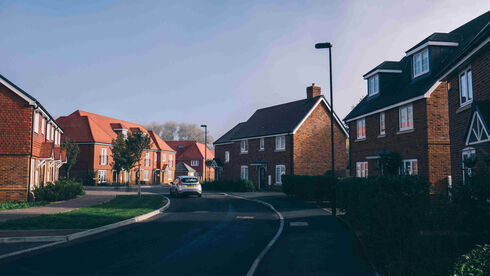
Home truths
7 July 2023

Disappointing but hardly surprising news came yesterday in data from the construction purchasing managers’ index (PMI) gathered by S&P Global and the Chartered Institute of Procurement & Supply (CIPS) for June, showing that residential housing activity declined at its fastest rate since the first Covid lockdown three years ago.
Survey respondents widely commented on weaker demand due to higher interest rates leading to rising borrowing costs, and a subdued outlook for the housing market.
The report also highlighted a reduction in new orders for the first time since January.
At 48.9 in June, down from 51.6 in May, the index registered below the neutral 50.0 threshold for the first time in five months. Residential work (index at 39.6) decreased at the steepest pace since May 2020. Aside from the lockdown-related fall in house building, the rate of contraction was the fastest since April 2009.
On a more positive note, civil engineering was the best-performing segment (index at 53.1), with business activity rising at the second-fastest pace since June 2022. Construction companies mostly noted increasing work on infrastructure projects.
Commercial building also expanded at a solid pace in June (index at 53.0), although the rate of growth slipped to a three-month low.
Generally, construction firms signalled a downturn in business confidence for the third month running in June. Weaker optimism about future workloads mostly reflected concerns related to rising interest rates and subdued housing market conditions.
Dr John Glen, Chief Economist at the CIPS, said: “With interest rates at the highest for 15 years and inflation four times over the Bank of England target, the sudden reduction in construction sector hiring is one of the red flags facing the UK economy at the moment."
However, it could be argued that there are other factors at work here. For example, it was also reported yesterday that nearly 200 small and medium-sized housebuilders have written to prime minister Rishi Sunak to say that changes in the planning system are preventing new developments from even starting.
The companies say they are reluctant to buy potential building plots for fear that planning applications will not be approved. And they state that environmental regulations and restrictions can add £20,000 or more to the cost of a new home, stifling demand.
Now, just saying there might be other reasons behind a housebuilding downturn doesn’t immediately make the situation better. But it does suggest that different actions could be taken to improve the outlook.
Indeed, anecdotal evidence suggests that it can currently take months or even years to arrange for electrical supplies to be connected to new housing estates.
People won’t move into houses that can’t be built or don’t have power, so removing such obstacles would be a positive help in challenging times.
Photo: Ryan Collis

